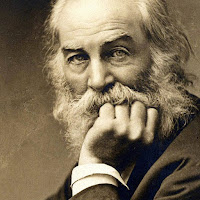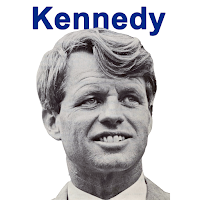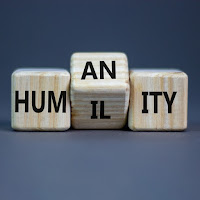It happened, to the best of our ability to tell, just once: an archaeon and a bacterium merged, and both survived as parts of one organism. That happened just once in 4 billion years, and it very easily might not have happened in 8 billion years or 16 billion. (The universe itself, remember, is less than 14 billion years old.)
Life out there may not be all that rare, but eukaryotic life? Maybe in 200 billion galaxies averaging 100 billion stars per galaxy, and 1 to 10 planets per star, only one single spot in the whole wide vast universe happened to produce such a monumentally unlikely thing as eukaryotic life. Maybe.
The science inspires our spirits into the awe and wonder of this amazing fluke – an archaeon absorbing a bacterium and both parts surviving, now as one. With that eukaryotic barrier crossed, then it was off to the races. How did we get to multi-celled organisms? Studies of single-celled eukaryotes called choanoflagellates offers a clue. They reproduce, as all unicellular organisms do,
“by dividing in two, but sometimes the two daughter cells fail to split completely and end up connected by a short bridge. This happens again and again, until there’s a sphere of linked cells, enveloped in a single sheath” (Ed Yong, I Contain Multitudes 56).This turns out to be helpful because the choanoflagellates are better at catching food as a group than they are on their own. So maybe that’s how the jump to multi-celled organisms got started. And from there came the explosion into 8.7 million species of eukaryotes – some 7 million of them animal species.
Here, then, is a spiritual message – a message of transcending mystery and wonder, and a message that offers us a sense of meaning. What we are, fundamentally – what we humans share with all primates, with all mammals, with all vertebrates, with all invertebrate animals, with all plants, all algae and all fungi – is that we are based on two very different things coming together and, against all odds, making one.
Moreover, life on this Earth has been combining into one in amazing ways every since. Which brings me to the book that our "Science and Spirituality" group is currently reading, which I have quoted from but not named: it’s by Ed Yong, titled, I Contain Multitudes. It’s all about the microbes that live around us, on us, and within us, and how they make our life possible.
I learned, for instance, that human milk has over 200 unique complex sugars called oligosaccharides. That’s far more than any other mammal. Why do we have so many? And here’s the real kicker: babies can’t digest oligosaccharides. They aren’t for the baby – at least not directly. Ed Yong writes that:
“When [milk researcher Bruce] German first learned about Human Milk Oligosaccharides, he was gobsmacked. Why would a mother spend so much energy manufacturing these complicated chemicals if they were indigestible and therefore useless to her child? Why hasn’t natural selection put its foot down on such a wasteful practice? Here’s a clue: these sugars pass through the stomach and small intestine unharmed, and land in the large intestine where most of our bacteria live. So, what if they aren’t food for babies at all? What if they are food for microbes?” (I Contain Multitudes 94)One particular bacteria species, B. infantis, gobbles up human milk oligosaccharides and, in so doing, releases short-chain fatty acids that feed the infant's gut cells.
“While mothers nourish the microbe, the microbe in turn nourishes the baby” (95).B. infantis also produces sialic acid which supports the rapid growth of a human infant’s brain.
Throughout the animal kingdom, there is dependence on microbes. As Yong says:
“When we look at beetles and elephants, sea urchins and earthworms, parents and friends, we see individuals, working their way through life as a bunch of cells in a single body, driven by a single brain, and operating with a single genome. This is a pleasant fiction. In fact, we are legion, each and every one of us. Always a ‘we’ and never a ‘me.’” (5)Microbes,
"help to digest our food, releasing otherwise inaccessible nutrients. They produce vitamins and minerals that are missing from our diet. They break down toxins and hazardous chemicals. They protect us from disease by crowding out more dangerous microbes or killing them directly with antimicrobial chemicals. They produce substances that affect the way we smell. They are such an inevitable presence that we have outsourced surprising aspects of our lives to them. They guide the construction of our bodies, releasing molecules and signals that steer the growth of our organs. They educate our immune system, teaching it to tell friend from foe. They affect the development of the nervous system, and perhaps even influence our behavior.” (12)There’s a cat microbe called toxoplasma gondii. It only reproduces in the specific environment of a cat’s gut. The cat’s poop teems with this microbes eggs, but the eggs have to get back into some cat’s gut. Rats, which will eat almost anything, eat the cat poop. Now there’s toxoplasma gondii in the rat’s system, and it influences the rat’s behavior – suppressing its normal fear of any place that smells like it might have a cat nearby. So the rat boldly ventures out, is more likely to get eaten by a cat, and thus the toxoplasma gondii happily makes its way back to a cat gut to begin the cycle anew.
In humans, it’s likely that certain microbes in certain numbers, high or low, can shift our mood.
Microbes that are helpful to us in one part of the body can be deadly in other parts. So a large part of the job of containing multitudes is containing all those multitudes. We have elaborate systems with layers of mucus interlaced with bacteriophage viruses to contain the microbes to the area where we need them.
“Microbes subvert our notions of individuality.... Perhaps it is less that I contain multitudes and more than I am multitudes.”A lot of me inside my skin keeps me going and healthy even though it doesn’t have my DNA. Moreover, what is me doesn’t stop at my skin.
“Every person aerosolizes around 37 million bacteria per hour. This means that our microbiome isn’t confined to our bodies.” (251)Each of us is walking around in a cloud of...ourselves.
Even so, keep in mind that microbes have their own evolutionary interests, and even the beneficial ones will benefit you only as far as doing so advances their own interests. When Whitman said, “I contain multitudes,” he was addressing the idea that he might be contradicting himself. “Do I contradict myself? Very well then I contradict myself. I am large. I contain multitudes.” But this, too, fits the microbial story – as microbes, push and pull with other microbes and with their hosts the way that contradictory propositions might pull in opposing directions. We are walking bundles of contradictions – our ideas and our organisms pulling in opposite directions at once.
One more lesson from what the study of microbes reveals is that diversity is good. Whether it’s the ecosystem of a forest or the ecosystem of your body, a diverse one is better than an impoverished one. People in hospitals so frequently contract diseases precisely because hospitals have been such sterile places. The best defense against pathogens isn’t the nuclear option of killing all microbes, because then we kill the ones that counteract the pathogens. We’re better off with diversity within us and diversity around us.
Where do we come from? What are we? We are many. E pluribus unum – from many one. It’s not just a political motto, it’s our inescapable biological reality. It’s our inescapable spiritual reality. E pluribus unum. From many, one.













